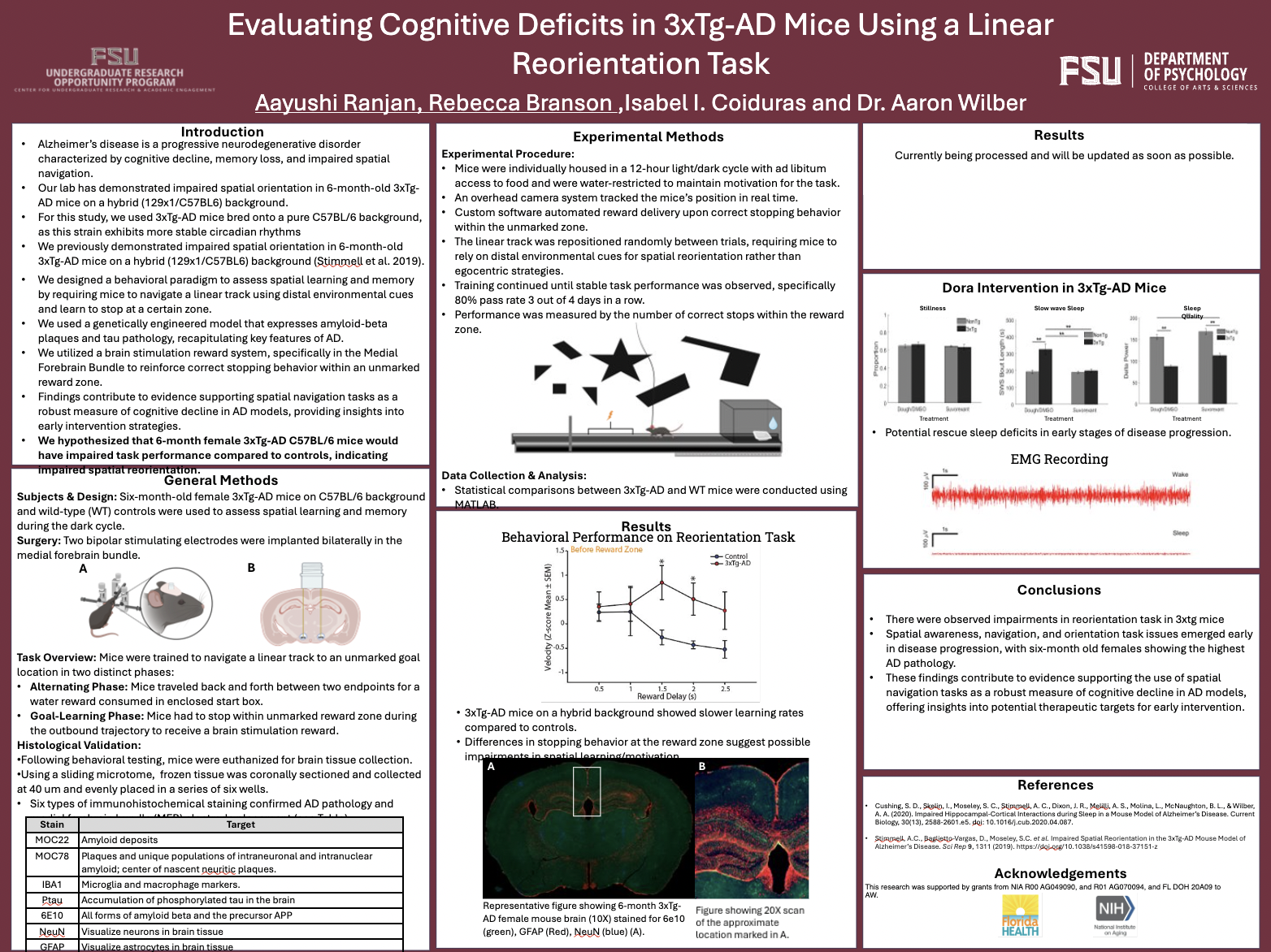Research Symposium
25th annual Undergraduate Research Symposium, April 1, 2025
Aayushi Ranjan Poster Session 2: 10:45 am - 11:45 am/ Poster #51

BIO
Hi! My name is Aayushi Ranjan, and I am a first-year Interdisciplinary Medical Sciences student, specifically Pre-Health Management, Policy, & Information, and I am involved in undergraduate research focusing on Alzheimer's Research. I participate in research through the Wilber Lab in the Psychology Department. Originally from Boca Raton, I love going to the beach and regularly participate in beach cleanups. Outside of academics, I enjoy exploring different cultures, learning new languages, and engaging in community outreach.
Evaluating Cognitive Deficits in 3xTg-AD Mice Using a Linear Reorientation Task
Authors: Aayushi Ranjan, Isabel CoidurasStudent Major: Health Management, Policy & Information
Mentor: Isabel Coiduras
Mentor's Department: Psychology Mentor's College: College of Arts and Sciences Co-Presenters: Rebecca Branson
Abstract
Alzheimer’s disease (AD) is a progressive neurodegenerative disorder characterized by cognitive decline, including impairments in spatial orientation. We observed impaired spatial orientation in genetically engineered 6-month-old 3xTg-AD mice on a hybrid (129x1/C57BL6) background. However, we required mice on a pure C57BL/6 background due to their more robust circadian rhythms. This study investigates cognitive deficits using a linear orientation task to assess spatial learning and memory. 3xTg-AD and C57BL/6 (wild-type) control mice were trained to navigate a linear track to an unmarked location. First, mice alternated back and forth on the track for a water reward in an enclosed start box. Then, they learned to stop in an unmarked reward zone during the outbound trajectory. Live tracking software automatically delivered a brain stimulation reward when mice stopped for a sufficient period. The track’s start position changed each trial, requiring mice to use distal cues for reorientation. We hypothesized that 6-month-old female 3xTg-AD C57BL/6 mice would show impaired task performance, indicating spatial reorientation deficits. Histological analysis confirmed medial forebrain bundle placement and assessed AD pathology. Immunohistochemical staining revealed amyloid-beta plaques and tau pathology in AD mice. Once sufficient data is collected, we will correlate pathology levels with behavioral impairments, expecting pathology density in the dorsal subiculum to correlate with task performance. These findings contribute to evidence supporting the use of spatial navigation tasks as a robust measure of cognitive decline in AD models, offering insights into potential therapeutic targets for early intervention.
Keywords: Alzheimer's, Cognitive Decline, Sleep


